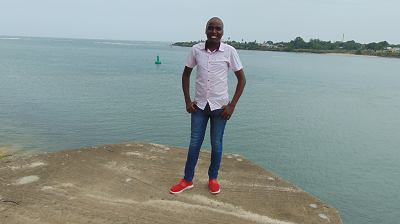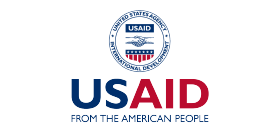Impact Stories & Blogs
Our team share their insights and perspectives on the impact our program is having on youth in East and Central Africa.

Brian Gicheru, Kenya, Cohort 24, Civic Leadership
The ocean was forging its own sea-song. She embraces the whole world with magnificent beauty and by her breathe humanity and other living-organisms survive A ship was docking after its enthralling journey in the high seas. Hundreds of people were embarking and disembarking from the ferry, leaving or heading to the south coast. This was the norm for Brian Gicheru, a young man who was born and raised on the South-Western side of Mount Kenya in a constituency called Mathira, Nyeri County, Kenya, a region that has earned itself a name in the international coffee trading circles. So, what was a ‘coffee boy’ doing miles away from his home region in a completely different environment?
“I undertook my undergraduate studies in Environmental Science at one of the Kenya’s Coast based research Institutions, Pwani University. I majored in Marine Ecology in a bid to satisfy my curiosity about oceans and how they function. However, it was improbable to get all the answers I needed about the Blue oceans and the enterprises they support within the four-year period of undergraduate studies. Fortunately, it was enough to equip me with the knowhow to progressively ask the right questions about the blue economy and attempt to answer them as a marine ecosystem researcher and professional,” explained Brian, small framed but gushing with knowledge.
It is upon this foundation that his work as a Program Officer in one of Mombasa’s oldest Environmental NGOs; Eco-Ethics, exist. Eco-Ethics was founded back in 2001 by Dr Bernard Okeyo, a Marine and Fisheries scientist based at Pwani University’s School of Environment and Earth Sciences. They focus their efforts in guiding coastal communities to sustainably exploit the Blue Economy’s potential leveraging on the vastness of marine ecosystem services. They closely work with artisanal fishers as well as their communities in Kenya’s Coastal region in protecting their livelihoods from a myriad of vulnerabilities they face as pollution and climate change takes a toll on oceans. Brian adds, “It is important to note that although I was prepared to handle any technical work emanating from my organization’s work in Blue Economy, I quickly realized that I needed to build my capacity in leadership skills for my work to have greater impact. Most of our projects are designed and implemented in partnership with target communities which in turn demand for good interpersonal and communication skills. Hardly are these qualities gained through normal schooling and at times one can find themselves at a tight position when leading a team to pitch a project proposal to a prospective donor.”
Sometime in 2017 during a discussion with his friend about capitalism and world leaders, it inspired him to submit his application to YALI RLC EA. “It was the only program I knew where budding leaders got mentorship as well as question the philosophy behind leadership. I remember This is Africa class and the subject on Systems Thinking cropped up again. “Being a member of YALI RLC EA alumni network means that I can easily access and synergize efforts with thousands of like-minded young leaders.
This has proved as a great advantage when seeking new partners for my organization not just in Kenya but also within East Africa.” For example, the prevalent poverty in Africa can be tackled by disaggregating the myriad factors it encapsulates and understanding their individual characteristics.” Instructively, Human-Centered design thinking is another YALI RLC EA take-home skill that has proved invaluable to this date in his work at Eco-Ethics. “It came in handy in a recent project I was leading to come up with creative solutions to curb marine plastic pollution in partnership with a fishing community in Kenya’s South Coast region.”
Brian emphasizes that the Center experience gave him a paradigm shift on how he understood leadership and its hallmarks. There is always this notion that the world lacks good leaders and he believes the Center is an investment to remedy this. “Being a member of YALI RLC EA alumni network means that I can easily access and synergize efforts with thousands of like-minded young leaders. This has proved as a great advantage when seeking new partners for my organization not just in Kenya but also within East Africa.



